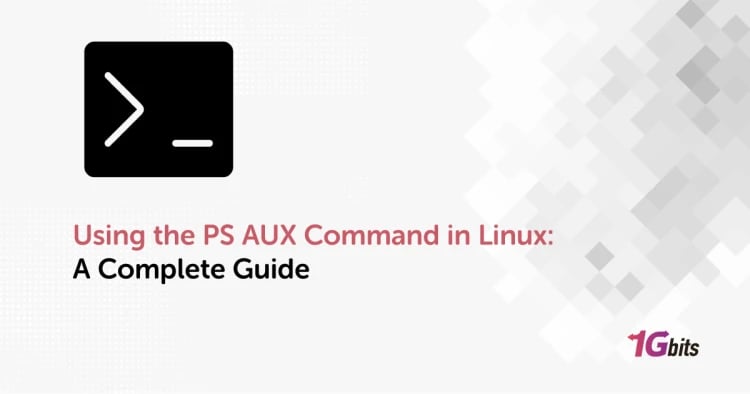Composer is an open-source, MIT-licensed package manager for PHP that is application-oriented. It sets up a project created in the PHP programming language by loading the various dependencies needed.
The main benefit of using Composer is that you can automatically update these dependencies and are not required to include these files with your PHP code because they are downloaded once more on the system used with the command.
This tutorial demonstrates how to install Composer on Ubuntu 22.04 and get going with it.
Install PHP and other dependencies.
Composer needs php-cli to run PHP scripts on the command line and unzip to extract zipped archives, in addition to dependencies like git and curl that should already be present on your Ubuntu 22.04 system.
You have to install these prerequisites. First, execute the following code to update the package manager cache:
sudo apt update
Run the subsequent command to install the necessary packages after that:
sudo apt install php-cli unzip
When asked to confirm installation, type Y and then press ENTER.
You can start to install Composer on Ubuntu after installing the requirements. You can start to install Composer on Ubuntu after installing the requirements. To learn more about Ubuntu and its features, check out our guide on What is Ubuntu.
Download and install Composer.
Composer offers a PHP installer script. It will be downloaded, checked to ensure it isn't damaged, and then used to install Composer.
Ensure that you are in your home directory then use curl to retrieve the installer:
cd ~
curl -sS https://getcomposer.org/installer -o /tmp/composer-setup.php
After that, we have to ensure that the downloaded installer matches the SHA-384 hash for the most recent installer on the Composer Public Keys/ Signatures page.
If you're also working with Java-based applications, you might find our guide on how to install Java on Ubuntu helpful for setting up the necessary environment.
You can use the following command to programmatically get the most recent hash from the Composer page and save it in a shell variable to speed up the verification step:
HASH=`curl -sS https://composer.github.io/installer.sig`
You can perform the following tests to confirm the result:
echo $HASH
Now run the PHP code listed below, which is available on the Composer download page, to make sure the installation script can be run without risk:
php -r "if (hash_file('SHA384', '/tmp/composer-setup.php') === '$HASH') { echo 'Installer verified'; } else { echo 'Installer corrupt'; unlink('composer-setup.php'); } echo PHP_EOL;"
The following output will appear:
Installer verified
You must download the installation script again and double-check that you are using the right hash if the output states that the installer is faulty.
Repeat the verification procedure after that. You can install Composer on Ubuntu once you have a validated installer.
Simple Composer use
Composer tracks dependencies on a per-project basis. Other users will find it simpler to establish the same environment.
The Composer uses the composer.json file to keep track of the program requirements and permitted versions.
It also employs a composer- lock file to preserve consistency even if the directory is copied. When the need command is used, these files are generated automatically.
Launch a terminal and type the following commands:
mkdir c_sample && cd c_sample
After that, pick a package to load. Downloadable PHP packages can be found on the website packagist.org.
We employ the monolog/monolog package in this illustration. Either proceed with the following steps or look up a different package on the website.
Type this into the terminal window:
composer require monolog/monolog
The composer.json and composer.lock files are created by the system along with the program download.
List the directory's contents after the procedure is finished.
ls –l
A vendor directory and the files composer.json and composer.lock are displayed in the list.
To see the composer.json file's contents, enter the following:
cat composer.json
The monolog software is added to the system. The software's minimum version is indicated by the carat symbol beside the version number.
[Boost your online presence with our high-performance Linux VPS hosting! Experience seamless website loading and rock-solid reliability for your business.]
Configuring Autoloading
Since PHP doesn't load classes automatically by default, Composer offers an autoload script that you may add to your project to enable autoloading.
When you add the first dependency, Composer automatically creates this file. The vendor/autoload.php file must only be in your PHP scripts before any class creation.
Open your text editor and create a new file:
sudo nano composer_sample.php
Then, insert the following:
<?php
require __DIR__ . '/vendor/autoload.php';
use Monolog\Logger;
use Monolog\Handler\StreamHandler;
// create a log channel
$log = new Logger('name');
$log->pushHandler(new StreamHandler('~/c_sample/text.log', Logger::WARNING));
// add records to the log
$log->warning('Foo');
$log->error('Bar');
Ctrl+O will write the file, while Ctrl+X will close it.
Execute the autoload monolog command:
php composer_sample.php
Update project Dependencies
Run the update command each time you would like to update your project dependencies to more recent versions:
composer update
This method will check the libraries you need for your project for updated versions. The composer will replace the previously installed version if a newer version is discovered and it complies with the version constraint specified in the composer.json file.
To reflect these modifications, the composer.lock file will be changed. Additionally, you can update one or more individual libraries by naming them as follows:
composer update vendor/package vendor2/package2
If you need administrative access to perform certain commands during the installation or update process, make sure to switch to the root user. Learn how to do this by following our guide on how to switch to the root user in Ubuntu.
Conclusion
Composer is a potent tool that can significantly simplify the management of dependencies in PHP projects. It provides a reliable method for locating, downloading, and maintaining the PHP packages that a project requires, ensuring that all dependencies are up-to-date and compatible.
In this article, we explored the process of installing Composer on Ubuntu, which is a widely used operating system for server environments, especially when running a VPS with Ubuntu. We also demonstrated how to add new dependencies to a project and update these dependencies as newer versions become available, which is crucial for maintaining the security and performance of your PHP applications.
Additionally, if you're using a VPS with Ubuntu as your server, you might find it beneficial to set up an Ubuntu RDP server. This setup allows you to manage your server remotely with a graphical interface, making it easier to install and configure tools like Composer, especially for those who prefer a visual approach over command-line operations.
By understanding how to effectively use Composer, along with setting up an on your VPS, you can ensure that your PHP projects are well-managed and your server environment is efficiently configured.
People also read:










